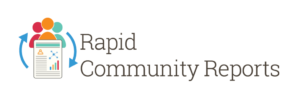The Rapid Community Report (RCR) Series shares findings and insights in the quickly evolving, interdisciplinary fields of learning sciences and technology. Researchers ordinarily share such information in journal publications, but these tend to appear late in a project’s lifecycle. Conferences (such as ICLS and CSCL) allow timely sharing but rarely communicate to an audience beyond the limited number of attendees. The RCR series is meant to be complementary to these existing publication venues and to allow rapid, early dissemination of research-based ideas.
Rapid Community Report submissions are closed
What are RCRs?
RCRs are brief, informative, peer-reviewed, citable, open access publications that contribute to both the research community and broader audiences. Thus:
- RCRs should be informative to both expert and non-expert audiences.
- RCRs should be immediately useful to the audience, and thus should strive for well-defined “take-away’s” (and pointers to where to find more details).
- RCRs should communicate clearly, with minimal jargon, and an eye to serving a broad audience.
- RCRs should aim for a useful life of 3-5 years, after which an update or replacement may be needed.
- RCRs are a peer-reviewed publication that demonstrates your impact, contribution, and recognition in the learning sciences community.
Currently, three types of RCRs are being published: primers (short introductions to a key topic in learning science and technology), workshop outcomes (resulting from a focused meeting on a theme), and design reflections (critical look at an emerging design). See the call for submissions for more information about each type. When preparing an RCR, see the instructions for authors. Submissions will be accepted with quarterly deadlines. Per the review procedures, peer review will be conducted in a virtual, online meeting with editorial board members and additional reviewers. The RCR series is a joint effort of the International Society of the Learning Sciences (ISLS) and the Center for Integrative Research in Computing and Learning Sciences, as described on the history page. Pending acceptance and completion of revisions, submissions will be published to the ISLS repository with a unique identifier in a citable form, under a Creative Commons license.
Who should submit an RCR?
We encourage all scholars to submit an RCR and contribute their expertise to the learning and computer sciences community. We especially encourage graduate students, postdocs, and recent graduates (within two years of graduation) to consider writing a submission. We offer five stipends a year ($250 for each published submission) to these select emerging scholars to recognize their work and support their professional development in the field.
To propose a new RCR, please use this form to submit a brief (100-150 words) abstract indicating the importance of the topic for the CIRCLS community.

